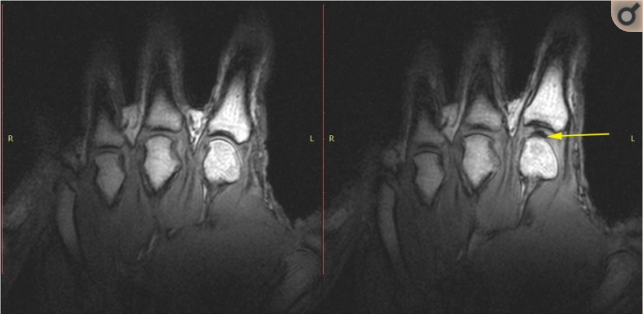3 Reasons Your Joints Pop
It’s a common complaint I hear; my knees pop when I squat or my hip snaps. People often seem concerned about this, but generally speaking, this is considered normal.There are 3 typical reasons joints make sound: 1. Tendons, 2. Arthritis, 3. Gas bubbles.
Tendons are the ends of the muscle and serve as attachments to bone. Because of this, they are located near bony prominences. Sometimes they roll over these areas like in snapping hip syndrome. Other times, they roll over other tendons such as the rotator cuff which is a series of 4 tendons. The general rule of thumb is if it doesn’t hurt, it’s nothing to worry about. However, if you are doing shoulder raises and your shoulder is popping with every rep, change the rotation of your shoulder (by changing your hand position) and see if you can get it to go away.
Another cause of sound is arthritis. At the ends of our bones, we have cartilage which is a slippery substance and allows joints to glide smoothly on each other. As we age, the cartilage thins or wears away and now the jagged edge of the bone grinds on the neighboring bone. This is very common in the spine, particularly the neck.
The last reason, and probably the most common, is the good ol’ gas bubbles. This is what you hear when you crack your knuckles, or when a chiropractor or physical therapist manipulates your spine. There is controversy surrounding this topic. The prevailing theory for years was that a bubble of gases inside the joint pops or collapses, causing the sound. This is called cavitation and is said to give you a sudden increase in mobility. A study in 2015 by Kawchuk et al. found just the opposite. Through real time MRI, they were able to conclude that the sound is actually the formation of a bubble when the joint is stretched, rather than a collapse. There is a substance called synovial fluid that is inside the joint and has an adhesive property. When force is applied to the joint that is stronger than the adhesion, the fluid fractures and causes a cracking sound. This is called tribonucleation. The idea here is that when the joint separates, negative pressure is formed and pulls dissolved gases out which form a bubble.
Kawchuk et al., 2015
That begs the question, is it good or bad for you? Well as we understand it now, it’s neither good or bad for you. There is no evidence to suggest that it causes arthritis. As a physical therapist, we manipulate joints to restore range of motion, the sound is just a by-product and is not an indication of whether the mobilization was successful or not. We will usually tell you to not attempt this on your own. The way the body works is that if you are stiff in one area, you tend to be “loose” or hypermobile in the neighboring area. If you like to crack your own neck, you are probably making a loose area looser. When we do it, we are doing our best to be specific to the stiff area. Although this is not an exact science, it’s certainly better when targeted.
References:
Kawchuk, G. N., Fryer, J., Jaremko, J. L., Zeng, H., Rowe, L., & Thompson, R. (2015). Real-Time Visualization of Joint Cavitation. PLOS ONE, 10(4), e0119470. https://doi.org/10.1371/journal.pone.0119470
Questions? Or do you want me to blog on a specific topic? Email me at: drchris@dpt.services




